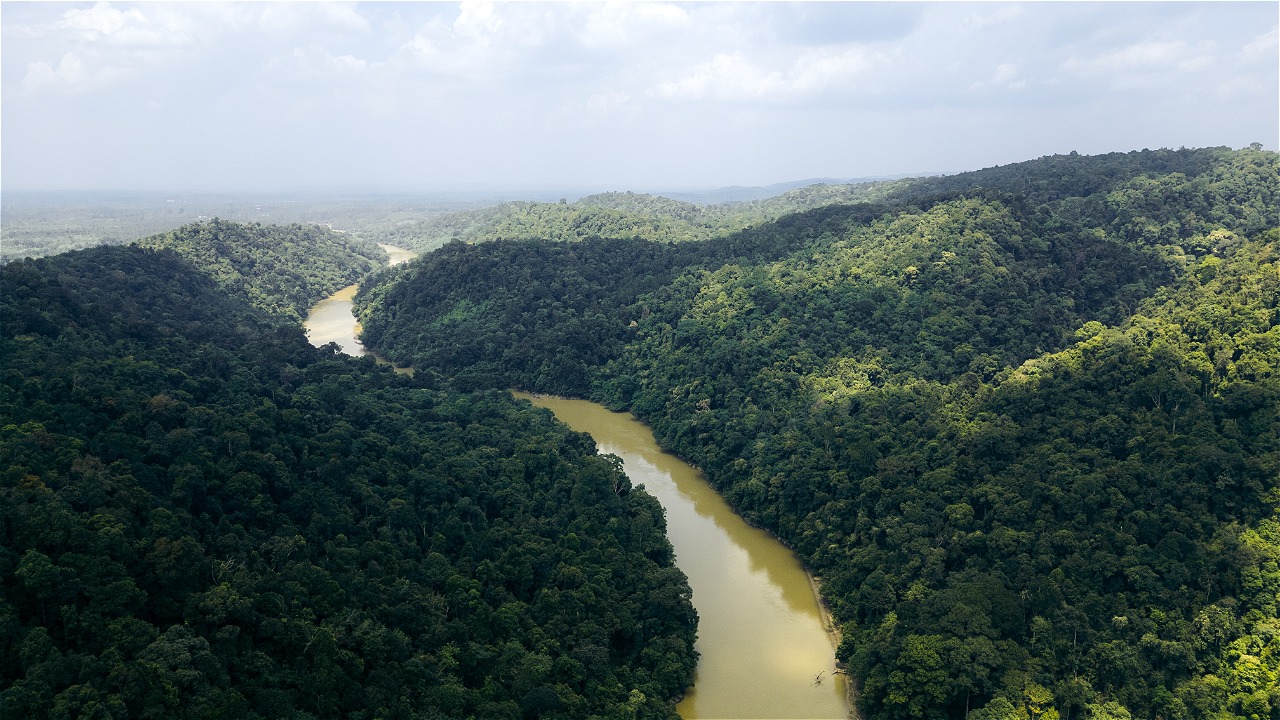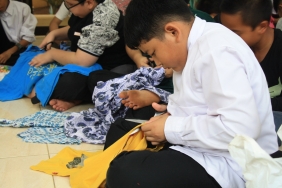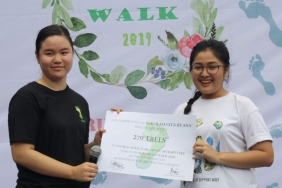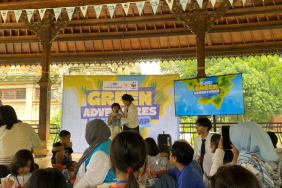SHARPENING SKILLS AND ABILITIES THROUGH WWF-INDONESIA VOLUNTEER TRAINING OF TRAINERS
By: Volunteers WWF-Indonesia (Kamelia Putri Utami, M. Sani Firmansyah, Tenno Mauladan Hendras, Azmi Hanif, Ryza Hanifa, Dimas Prasetyo, Priscilla Delhaye, Prima Lady, Iqbal Maulana Saputra, Joandini Asmoro, Reggy Hana Alexandra, Ratna Wati, Atri Widia Sari, Ibnu Fajar, Gama, Haris Zakian Hussein)
WWF-Indonesia Volunteers are the frontliners for WWF-Indonesia. The existence of volunteers is very influential for the oldest conservation organization in Indonesia in delivering conservation messages to the public. Through volunteers, the public can get to know WWF-Indonesia and its programs and campaigns more deeply.
The participation of WWF-Indonesia's volunteers especially in the field of education is found in several programs, such as Panda Mobile, Bumi Panda, Omah Panda, and Environmental Education for Sustainable Development (ESD). The four educational programs have the main agenda of educating the public, especially children related to environmental issues that are happening and providing awareness about Indonesian animals that are almost extinct.
Considering the important role of the volunteers, WWF-Indonesia held a training of trainers (TOT) on Thursday-Saturday, February 11-13, 2016 at the Guest House of Cibodas Botanical Garden, Bogor, West Java. The activity which was attended by 40 WWF-Indonesia's volunteers was a form of appreciation from WWF-Indonesia to the volunteers. In addition to providing training to WWF-Indonesia's volunteers, the activity was also utilized as a medium to strengthen intimacy between volunteers which came from various educational backgrounds.
For three days and two nights, the volunteers received training in the form of materials and skills to be able to equalize perceptions or viewpoints among fellow volunteers related to environmental issues so that later they can provide good education before going into the community. Materials related to forest and marine ecosystems, education for sustainable development, the importance of water, ecology and biodiversity were delivered by resource persons from WWF-Indonesia. The volunteers also received supporting knowledge and skills, such as storytelling, writing and photography techniques using cell phone cameras, and how to design educational games. The atmosphere was warm. Various questions arose from the volunteers to dig deeper into their knowledge.
During the activity, there was one agenda that was very favored by the participants, namely "Morning Observation". In this activity, volunteers were given directions and divided into several groups to observe the environment around Cibodas Botanical Garden. There were three categories in the observation agenda, namely Mammal Observation, Water Observation, and Bird Observation. The volunteers were able to see firsthand the existence of various birds, gibbons, and various insects in their habitat. The facilitator who accompanied each group gave a brief explanation about the observation activities.
They were also given the opportunity to practice designing activities that will be delivered to the public by paying attention to several important elements, such as themes, objectives, target age, school, and type of activity. Another practice was to make an educational game with a specified theme. The activity had a positive impact on cooperation between volunteers and added insight into educating the public.
On the last day, three representatives from the Gunung Gede Pangrango National Park's volunteer organization, Montana, shared stories and motivation about the world of volunteers. One of them was the motivation to become a volunteer that must come from the heart, from oneself.
The TOT activity was closed by Susilowati Lestari, Supporter Relations WWF-Indonesia. Susilowati hopes that the volunteers will be more knowledgeable and have qualified skills in order to become a good frontliner for WWF-Indonesia, especially for the community. "It is not only about environmental education that can be done by the volunteers, but the message conveyed must also be accepted and implemented by the community," he said.





